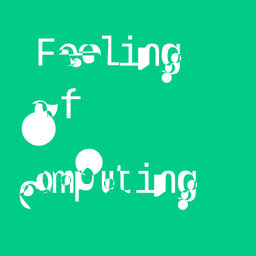Mathematical Foundations for the Activity of Programming: Cyrus Omar
Usually when we think of mathematics and programming languages, we think of tedious, didactic proofs that have nothing to do with our day to day experience of programming. And when we think of developer tools, we picture the practical, imperfect tools we use every day: text editors, build systems, libraries, etc. Cyrus Omar is new computer science professor at the University of Michigan bridging these disciplines by creating the foundations to precisely reason about the experience of programming.
We open the conversation with how Cyrus got his start in computational biology, but how his dissatisfaction with the tooling led him to eventually to PL theory. At the time of this conversation Cyrus was interviewing for tenure-track positions, so we discussed the pros and cons of getting a PhD, being a post doc, and finding a job in academia. (He recently accepted a job at University of Michigan.) I enjoyed riffing with him on new media or platforms to accelerate science instead of the "dead tree of knowledge", including Cyrus's vision for a "computational Wikipedia" built on top of Hazel. Ultimately Cyrus shares the vision of democratizing computation, and we talked about how he imagines extending the Hazel project to be able to embed GUIs inside Hazel expressions, which can in turn contain arbitrary Hazel expressions or other GUIs.
I loved our conversation about some of the classic touch points for improving programming - projectional editors, feedback loops, end user programming - but from a more academic perspective then usual. Hope you enjoy as well!
Transcript at futureofcoding.org/episodes/039#transcript, provided by Replit.
In 1 playlist(s)
Feeling of Computing
An imaginative, ruminative romp through the land of poisoned sand. What even are computers, where di…Social links
Recent clips

The Computer is a Feeling by Tim Hwang & Omar Rizwan
2:33:48

Let's Take Esoteric Programming Languages Seriously
1:53:45

As We May Think by Vannevar Bush
1:59:30
 Feeling of Computing
Feeling of Computing